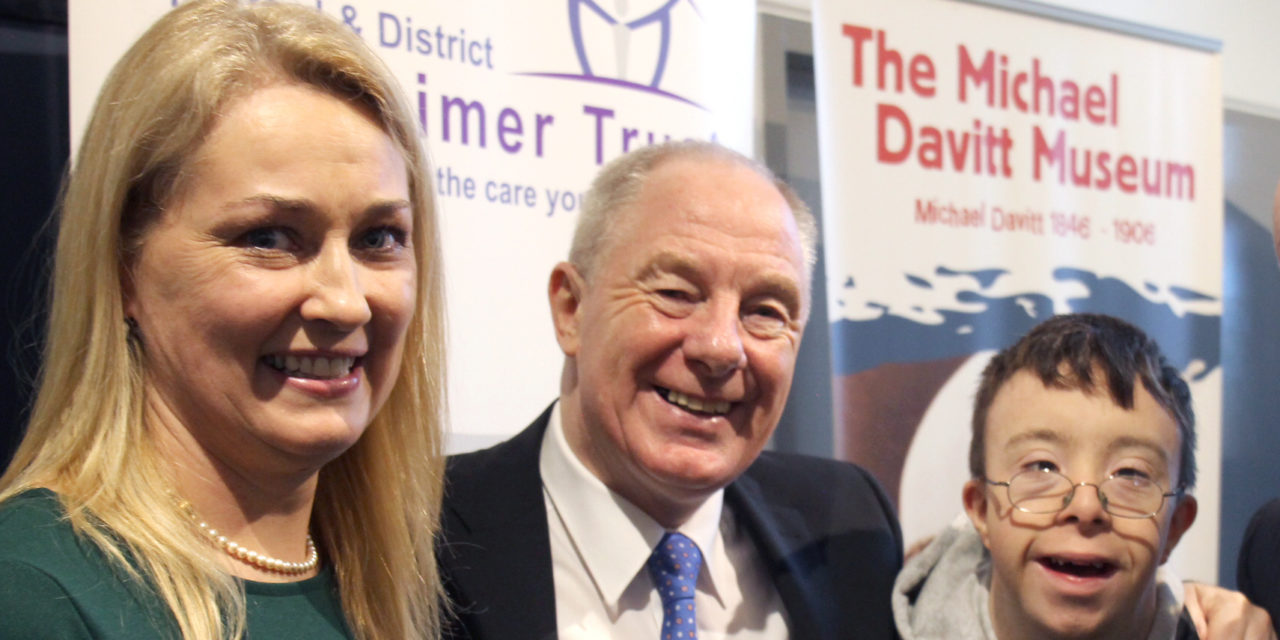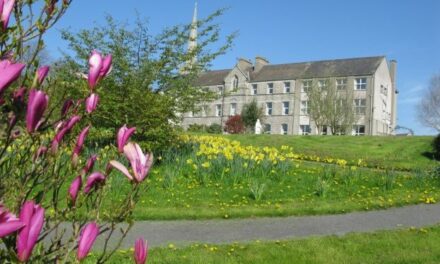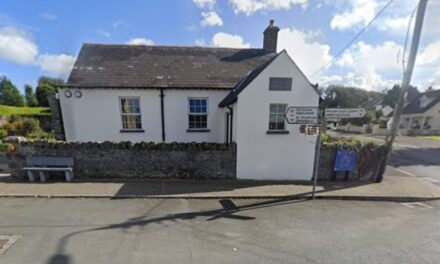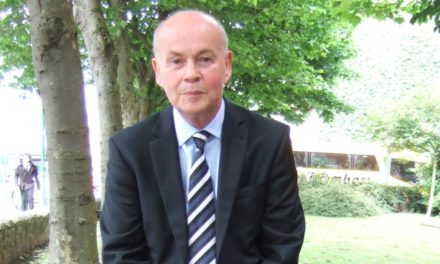The Michael Davitt Museum may be small, but it’s impressed an unlikely international supporter: China. The deserving community museum recently received department funding to further its reach.
After 46 years in existence, the Michael Davitt Museum in Straide, Co Mayo,is at last getting welcome financial support from the government through once-off funding from the Department of Rural and Community Development.
The €40,000 will help the museum become a ‘centre of excellence’ under the guidance of a newly hired cultural development officer.
New curator Yvonne Corcoran-Loftus will fill that role. She has worked in the museum since 2013, having started out as a Community Employment Scheme supervisor.
The museum she now manages is housed in a restored pre-Penal Era church next to a 13th-century abbey. Davitt was baptised there and is buried in the adjoining graveyard.
The voluntary group she leads has already proved its worth, impressing the Chinese embassy and bringing interns from China to work there, while all the time improving the visitor experience. On TripAdvisor, 93% of reviewers have rated the museum as ‘excellent’.
Chinese interest
Davitt was an important international supporter of Chinese strides for independence in the late 19th century. Now the Chinese have been reminded of this, says Mayo North East CEO Justin Sammon, they’re taking huge interest.
In Ireland, Michael Davitt – founder of the Land League, a Home Rule politician, and an MP in London – is not well recognised, which is surprising considering all he accomplished. It is this that drives the voluntary group pushing to develop the museum.
“He is a symbol to us of someone who fought injustices,” said Sammon, an avid historian.
“He caused a lot of armless revolution and was the founder of social revolution, probably, from Gandhi to the Boers,” he said.
Sammon has encyclopaedic knowledge of Davitt’s “full blessing to the Chinese revolution” during that era.
“The Chinese were unaware of this and now they all want to know more. The Chinese ambassador has asked his cultural attaché to work with Mayo North East. To date, we’ve had three interns from China working here for six months, and we’ve had numerous visitors from China. We hope to have an international conference on Davitt soon,” he said.
Where will the funding go?
Sammon welcomed the funding: “This is the first time in 46 years that a government department has recognised the significance of this as a tool for development.”
The museum committee believe Davitt should be recognised in his own country and have worked on a cultural programme to make it happen. They believe their programme can help foster leadership in communities and make places more attractive for people from outside to move to.
“In community development parlance, our model is cultural animation and we want to pursue that more across rural Ireland,” he said.
‘Davitt would have been proud of SICAP’
Jimmy Moloney, the treasurer of the Michael Davitt National Memorial Committee, spoke on the museum’s behalf:
“Down through the years, we knocked on many doors looking for funding and none were answered, until now.
“Michael Davitt is the most important figure in our past and it would be a shame if we didn’t honour and remember the legacy he left Ireland.
“I am very proud of the museum staff and volunteers – they’ve worked so hard over the past years.”
He added: “Michael Davitt would have been proud of the SICAP programme [sic].”
Minister Ring thanks volunteers for ‘keeping communities going’
Minister Michael Ring TD spoke at an event announcing the funding allocation. In his speech, he congratulated the “many people who kept this museum open and alive,” and said, “I’m pleased that my department is going to provide some funding for the next two years”.
He congratulated Mayo North East for taking responsibility of supporting the museum: “It’s a good move and I’d like to see it happening in more projects.”
He thanked the volunteers for the work that government, local authorities and agencies cannot do.
“People are out there keeping communities going, keeping festivals going and keeping their businesses going,” said the Minister.
Interested in reading more about the state of Ireland’s community development sector? Check out our latest issue.





